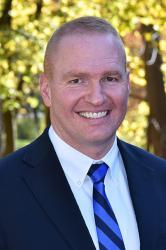Like everyone else, I’m trying to wrap my mind around the blizzard of information on the coronavirus pandemic and the sudden change in my daily routine. It’s all a bit surreal. Yes, I still retrieve my Wall Street Journal in the morning—but with gratitude that this is not my sole medium of information.
Ubiquitous access to information—good or bad; accurate or inaccurate—can be unsettling during a crisis. But the free flow of information is always preferable to censorship or state-orchestrated disinformation, which only serve to exacerbate catastrophes as we saw with Chernobyl. There can be a price for upholding the principle of freedom of the press: Spain’s relatively free press in 1918 served to affix its name to the global flu pandemic of that time. But it’s better to pay that price than pursue the alternative.
It’s important during troubled times to recall first principles. The Acton Institute is founded on the basis of 10 Core Principles, and these core principles undergird our entire mission. Two of them are particularly relevant at this moment: the Dignity of the Person and the Social Nature of the Person.
The Dignity of the Person
It is not without reason that these are the first two on Acton’s list: Just listen for yourself as Acton’s president and co-founder recalls his childhood encounter with his neighbor, Mrs. Schneider. As Rev. Robert Sirico points out, a proper anthropology is a precondition for a sound economic and political order.
There are important economic lessons underlying these principles. What is clear now, and will become increasingly clear as this situation unfolds, is that human beings are the ultimate resource. We are in a race against time to save people from a deadly disease, and thereby preserve the economic wellbeing of all. And the word “thereby” is crucial: Of all the economic resources of the earth, the human being and his or her creative mind and entrepreneurial capacity are by far the most consequential for human flourishing.
Each individual has an inherent dignity, because God has created him or her in His image and likeness. And although human beings are indeed the ultimate resource from an economic standpoint, their dignity is not based on their economic value or productivity. The response to the coronavirus pandemic from all levels of society (as individuals, among families, through various sodalities, and across various levels of government)—must therefore be rooted in the primacy of the human person and his or her inherent dignity.
The Social Nature of the Person
The second principle—the Social Nature of the Person—has embedded in it one of the most consequential sources of human flourishing: the division of labor. We thrive on applying our unique gifts and talents. Those gifts and talents are to be used creatively in the service of others, whether within the context of marketplace exchange or non-market relationships like the family or a high school sports team. Our wellbeing is dramatically enhanced by the comparative advantage we leverage as unique individuals and unique nations.
Perhaps this is the root of much of the current market fear: At its extreme, a pandemic could induce the division of labor to collapse on itself—whether through a dramatic scaling back of international trade or the evaporation from the marketplace of unique gifts and talents brought about by high unemployment. Though free and rational individuals, we are all dependent on one another. We are social beings.
Social distancing is difficult for social beings: We were created for God and for each other. Thankfully, modern technology has not only facilitated the exchange of critical information to defeat the virus, it has also enabled some of us to work remotely and maximize physical distance from others. Nevertheless, our continued use of gifts and talents still entails social interactions and the division of labor.
Human interaction and exchange will always be fundamental to human flourishing. As we endeavor to buy time by following the guidance of epidemiologists, medical professionals, and other experts, Acton’s first two core principles serve as important reminders of the centrality of the human person to the global economy and how our social nature has enabled the specialization and expertise that lead to human flourishing.
Though crises come and eventually pass, these principles will always remain.
(Photo credit: www.vperemen.com. CC BY-SA 4.0.)

